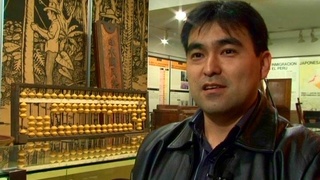Interviews
Americanized values (Japanese)
(Japanese) About three years ago, I took my husband to Japan for the first time. Alright, so this is really not a big deal, but my husband sat down near the tea pot/dispenser. From my perspective, it was just a matter of convenience, so I asked him if he could pour some tea. He happily obliged, pushing down on the dispenser and enjoying the noise it made. But then my mother and sister-in-law, who were watching this next to us, were in disbelief, saying, “I can’t believe you’re making your husband do that.” To me, it was just like… well he’s the one who’s close to the pot, so he might as well do it, right? And that’s when I came to a realization about my Americanized values. Another time, my brother’s wife was going to treat us to shelled oysters. So she goes out and buys them, and she’s in the kitchen by herself, gloves on and all, working hard to dig out the oysters from the shells. So I’m watching this, and I volunteered my husband to help, telling her to “Let David do it.” This kind of stuff is really tough to do, and I felt bad for her. Then she turns to me and says something like “Please, just quit saying things like that.” David’s standing there confused because he doesn’t understand Japanese, but I told her, “oh come on, you should let the men do the tough jobs like these.” Maybe my family is just ultra-conservative, but it made me think: can I not say or do things like that in a traditional Japanese household? I’m hoping that times will change, little by little. We shouldn’t think too much about what men should be doing, or what women are supposed to do—whoever can do it should be the ones who do it. But that kind of reasoning doesn’t really seem to fly with my mother.
Date: March 1, 2007
Location: California, US
Interviewer: Yoko Nishimura
Contributed by: Watase Media Arts Center, Japanese American National Museum









